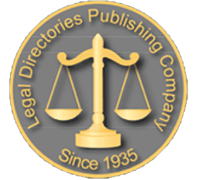How to Hire an Attorney for Business Litigation
Let’s talk about the number one concern for most business owners facing a legal dispute: the cost. The fear of unpredictable legal fees can be paralyzing, often preventing entrepreneurs from getting the help they need when they need it most. But understanding how legal costs work is the first step toward managing them effectively. The final bill is more than just an hourly rate; it’s a combination of your attorney’s fee structure, court costs, and case-specific expenses. A transparent conversation about your budget is crucial. This guide will demystify the costs associated with hiring an attorney for business litigation and provide practical strategies for managing your legal investment without any surprises.
Key Takeaways
- Proactive Legal Counsel Is Your Best Defense: Engaging an attorney to review contracts and policies before a dispute arises is the smartest way to protect your business. This preventative approach saves you from far greater costs and stress down the road.
- Hire a Strategic Partner, Not Just a Lawyer: Seek an attorney with proven experience in your industry and a problem-solving mindset. The right fit will understand your business goals and communicate a clear strategy for achieving them.
- Be an Engaged Client to Manage Costs: You can directly influence the efficiency of your case. Achieve better outcomes and control legal expenses by organizing your documents, establishing clear communication, and collaborating on strategy with your legal team.
What is Business Litigation?
When you hear the term “business litigation,” it might sound intimidating, but at its core, it’s simply the process of resolving a business-related dispute in court. These disagreements can pop up for all sorts of reasons, from a simple misunderstanding to a serious conflict. Because these situations can get complicated and costly very quickly, having a qualified business litigation attorney on your side is key. They can help you understand your options, assess the potential costs, and create a strategy to protect your company’s interests.
Common Types of Business Disputes
Disagreements are a natural part of doing business, but some can escalate into legal issues. The most frequent business disputes we see involve breach of contract, where one party fails to deliver on a signed agreement. Another common issue is fraud, which happens when someone uses deception to gain money, goods, or services unfairly. We also handle many employment disputes, which can cover anything from wage disagreements and discrimination claims to wrongful termination. No matter the specifics, these conflicts can disrupt your operations and threaten your bottom line if not handled properly.
When Should You Hire an Attorney?
The best time to hire an attorney is as soon as you sense a dispute is on the horizon. Many business owners wait until they’ve been served with a lawsuit, but getting legal advice earlier can often prevent the situation from escalating. If a client is refusing to pay, a partner is violating your agreement, or you receive a threatening letter, it’s time to talk to a lawyer. An attorney can help you understand your rights and obligations, and often, a letter from a law firm is enough to bring the other party to the negotiating table. Proactive legal counsel is always better than reactive damage control.
Clearing Up Misconceptions About Business Litigation
Many business owners hesitate to hire an attorney because of a few common myths—namely, that it’s too expensive, signals aggression, or is only necessary in a full-blown crisis. The truth is, early legal counsel can save you a significant amount of money and stress by resolving issues before they go to court. While you aren’t legally required to have an attorney for a business dispute, trying to handle it alone is a huge risk. The legal system is complex, and a small misstep can have major consequences. Think of your attorney as a strategic partner who can guide you through the challenges and protect your business.
Qualities of an Effective Business Litigation Attorney
When you’re facing a business dispute, the attorney you choose can make all the difference. It’s not just about finding someone with a law degree; you need a strategic partner who understands your business and is committed to protecting it. The right litigator brings a specific set of skills to the table that goes far beyond knowing the law. They act as your advocate, your strategist, and your guide through a complex and often stressful process.
Think of it this way: you’re not just hiring a lawyer, you’re investing in an expert who can help safeguard your company’s future. From their experience and communication style to their approach to problem-solving, every quality matters. A great attorney doesn’t just react to legal challenges; they anticipate them and help you prepare. They understand that a lawsuit can impact your operations, reputation, and bottom line. That’s why finding someone with the right blend of legal acumen and business insight is so critical. Let’s break down the key traits you should look for when hiring a business litigation attorney.
Key Qualifications and Experience
First things first, you need an attorney who is qualified to practice law in Florida and has a proven track record in business litigation. But don’t stop there. The best legal advisors have more than just courtroom experience; they have genuine business sense. Look for someone who understands the commercial realities you face every day. An attorney with a background in business can offer practical advice that aligns with your operational needs, not just your legal ones. When vetting potential lawyers, review the background and case history of the firm’s attorneys to see their specific experience in disputes similar to yours.
Why Industry-Specific Knowledge Matters
Every industry has its own language, regulations, and challenges. An attorney with industry-specific knowledge can get up to speed on your case much faster and develop a more effective strategy. Whether you’re in real estate, tech, or retail, a lawyer who understands the nuances of your sector can anticipate potential roadblocks and identify unique opportunities. This specialized expertise is invaluable, as it allows them to craft arguments that resonate with judges and juries who may not be familiar with your industry. This kind of focused experience is a hallmark of exemplary legal representation and can significantly impact your case’s outcome.
Communication and Strategic Skills
A great litigator is a master communicator. They need to be able to explain complex legal concepts to you in plain English, present a compelling case in court, and negotiate effectively with the opposing side. Look for an attorney who is not just intelligent and creative, but also a clear and confident advocate for your position. Beyond communication, they must be a sharp strategic thinker. This means they are always looking several steps ahead, planning for different scenarios, and adapting their approach as the case evolves. They should be aggressive when necessary but careful and calculated in their actions.
A Problem-Solving Approach
Ultimately, you want an attorney who is a problem-solver. Litigation isn’t just about winning a battle; it’s about finding a resolution that serves your company’s long-term interests. A successful business litigation attorney approaches each case with a focus on achieving the best possible outcome for your business, whether that’s through a favorable settlement, mediation, or a court verdict. During your consultation, ask how they approach problems. They should be able to demonstrate how they work to protect their clients’ rights while finding solutions that are legally sound and aligned with your bigger business goals.
What Can a Business Litigation Attorney Do for You?
When you think of a business litigation attorney, you might picture dramatic courtroom scenes from a movie. While trial representation is a crucial part of the job, an attorney’s role is much broader and begins long before anyone steps into a courtroom. A skilled attorney acts as your strategic partner, working to protect your company’s interests through every phase of a dispute. From initial planning to post-resolution support, their goal is to find the most effective and efficient path forward for your business.
They help you understand the full picture, not just the conflict at hand. This comprehensive approach is what truly defines modern business law and litigation, focusing on solutions that preserve your company’s health and future. It’s about turning a potentially damaging situation into a managed process with clear objectives. Whether it’s a contract dispute, a partnership disagreement, or an intellectual property issue, your attorney is there to provide clarity and direction. They translate complex legal concepts into actionable advice, empowering you to make informed decisions every step of the way. Ultimately, their work is about safeguarding what you’ve built and helping you get back to business as smoothly as possible.
Develop a Pre-Litigation Strategy
Before a lawsuit is even filed, a great deal of strategic work needs to be done. This is where a business litigation attorney first proves their value. They will work with you to assess the potential costs and benefits of litigation, helping you develop a clear strategy that aligns with your business goals. This involves a thorough analysis of your case’s strengths and weaknesses, identifying potential risks, and outlining your options. A strong pre-litigation plan ensures you’re not just reacting to a problem but are proactively managing it to achieve the best possible outcome for your company.
Explore Alternative Dispute Resolution
Not every business dispute needs to end in a lengthy and expensive court battle. Your attorney can help you explore alternative dispute resolution (ADR) methods that can save you time, money, and stress. The two most common forms are mediation and arbitration. In mediation, a neutral third party helps facilitate a conversation between you and the other party to reach a mutually agreeable solution. In arbitration, a neutral arbitrator hears both sides and makes a binding decision. These processes are typically more private and less formal than a traditional trial, offering a practical way to resolve conflicts without disrupting your business.
Represent You in a Trial
If your case does go to court, having an experienced trial lawyer on your side is essential. Your attorney will manage every aspect of the litigation process, from filing motions and handling discovery (the formal process of exchanging information and evidence) to presenting a compelling case before a judge or jury. They will question witnesses, challenge the opposing side’s arguments, and advocate fiercely for your interests. The experienced attorneys at Legal Counsel, P.A. understand the nuances of Florida courtroom procedure and can guide you through the complexities of a trial with confidence.
Provide Post-Resolution Support
An attorney’s job doesn’t end when a verdict is announced or a settlement is signed. After a resolution is reached, they provide crucial support to ensure the terms are followed correctly. This can involve drafting and reviewing settlement agreements, managing the transfer of funds, and making sure the other party complies with their obligations. This follow-up is key to protecting your business long-term. Your attorney ensures that the outcome you fought for is fully realized, giving you the peace of mind to move forward.
How to Choose the Right Attorney for Your Business
Finding the right legal partner for your business can feel like a huge task, but it doesn’t have to be overwhelming. The key is to approach it methodically, knowing what to look for and what questions to ask. Think of this as a hiring process for a critical team member—because that’s exactly what it is. A great business attorney becomes a trusted advisor who not only helps you through disputes but also guides you in making decisions that protect your company’s future. Let’s walk through the steps to find an attorney who is the right fit for your specific needs.
How to Research and Vet Potential Attorneys
Your search for the right attorney should start with some focused research. First, confirm that any potential candidate is licensed to practice law in Florida and is in good standing with The Florida Bar. Next, look for specific experience. You don’t just want a general lawyer; you need someone with a deep understanding of Florida business law. Check their website for case studies, testimonials, and detailed biographies of their attorneys. A firm that clearly outlines its experience in your industry or with your type of legal issue is a strong contender. Look for a proven track record that shows they’ve successfully handled cases similar to yours.
Key Questions to Ask in a Consultation
The initial consultation is your opportunity to interview the attorney and see if they’re a good match. Don’t be afraid to ask direct questions. Start with their experience: “Have you handled business disputes like mine before? What was the outcome?” You should also ask about their approach. Inquire about their communication style and how they plan to keep you updated on your case. A great question to ask is, “What is your strategy for a case like this, and what do you see as the potential challenges?” This gives you insight into their critical thinking and whether they are proactive. Pay attention to how they listen and respond—you want a partner who is dedicated and creative in their problem-solving.
Breaking Down Legal Fee Structures
Understanding the financial commitment is crucial, so have a frank conversation about fees from the start. Many business attorneys work on an hourly basis, with rates often ranging from $150 to over $400 per hour, depending on their experience and the complexity of your case. Some lawyers offer flat fees for specific, well-defined services like drafting a contract or forming a business entity. Ask for a clear explanation of their fee structure and what it includes. You can also request a written fee agreement that outlines all costs, so there are no surprises. Don’t hesitate to contact the firm to discuss their specific policies during a consultation.
Red Flags to Avoid
Knowing what to avoid is just as important as knowing what to look for. A major red flag is a lawyer who guarantees a specific outcome. The legal system is unpredictable, and an ethical attorney will only speak in terms of probabilities and strategies. Be wary of poor communication; if they are difficult to reach or unclear in their explanations during the consultation, that pattern will likely continue. Another warning sign is a lack of transparency about fees. Finally, one of the biggest mistakes you can make is waiting too long to seek legal advice. Trying to handle a dispute on your own or ignoring a problem can lead to much bigger and more expensive issues down the road.
What Does Business Litigation Really Cost?
When you’re facing a business dispute, the potential cost of legal action is often the first thing on your mind. It’s a valid concern, but thinking of legal services purely as an expense can be misleading. Instead, consider it an investment in protecting your company’s future. The final bill for business litigation isn’t a single number; it’s a combination of attorney fees, case-related expenses, and the complexity of your dispute. Understanding these components is the first step toward managing your legal budget effectively and making informed decisions for your business.
Understanding Attorney Fee Arrangements
The way your attorney bills for their time will be the largest part of your legal costs. Most business litigation attorneys use one of a few common fee structures, and it’s important to know how each one works before you sign an engagement letter. The most prevalent is the hourly rate, where you pay for the actual time your legal team spends on your case. Rates can vary based on an attorney’s experience and location.
Other arrangements include flat fees for specific, well-defined tasks, or a retainer, which is an upfront payment that your attorney bills against as they work. While less common in business disputes, some cases may involve a contingency fee, where the attorney’s payment is a percentage of the amount recovered. A clear discussion about the fee structure during your initial consultation will ensure there are no surprises and that you can find an attorney whose billing practices align with your budget.
Factoring in Additional Expenses
Beyond your attorney’s fees, litigation comes with a variety of other expenses that can add up. The scope of your case will largely determine these costs. For example, a straightforward contract dispute will have fewer associated expenses than a complex intellectual property lawsuit that requires extensive research and expert testimony.
Common additional costs include court filing fees, which are required to initiate and process your case, and discovery costs. Discovery is the phase where both sides exchange information, and it can involve expenses for depositions, document production, and hiring expert witnesses to analyze evidence and testify. If you pursue alternative dispute resolution, you’ll also need to account for mediator or arbitrator fees. Understanding these potential expenses from the start helps you build a more realistic budget for your business litigation needs.
How to Assess the Value of Legal Services
When you’re evaluating potential attorneys, it’s tempting to focus on the lowest hourly rate. However, the cheapest option isn’t always the most valuable. An experienced attorney might charge a higher rate but resolve your case more efficiently, saving you money and stress in the long run. The true value of legal services lies in the expertise, strategic guidance, and peace of mind a great attorney provides.
Think about the potential outcomes. A skilled litigator can not only represent you in court but also offer creative solutions that protect your business interests and prevent future disputes. Their ability to anticipate challenges, manage negotiations, and build a strong case is an asset that goes far beyond billable hours. The right attorney acts as a strategic partner, allowing you to focus on running your business while they handle the legal complexities.
Strategies to Manage Legal Costs
While you can’t control every aspect of litigation costs, you can take proactive steps to manage them. It starts with being an organized and engaged client. Before meeting with your attorney, gather all relevant documents, create a timeline of events, and write down your questions. The more prepared you are, the less time your attorney will need to spend on fact-finding.
Communicate efficiently by grouping non-urgent questions into a single email rather than making multiple phone calls. During your initial consultation, have an open conversation about your budget and ask for a realistic cost estimate. You can also discuss the possibility of alternative dispute resolution, like mediation, which is often less expensive than a trial. By working collaboratively with your attorney, you can help shape a legal strategy that is both effective and cost-conscious. The best way to start is to schedule a consultation to discuss your specific situation.
How to Work Effectively With Your Attorney
Hiring a business litigation attorney is the first step, but building a strong working relationship is what truly sets your case up for success. Think of your attorney as a strategic partner. The more effectively you collaborate, the smoother the process will be. Open communication, clear goals, and mutual respect are the foundation of a partnership that can confidently handle legal challenges. By working together as a team, you combine your in-depth knowledge of your business with their legal expertise to create a powerful strategy.
Set Clear Expectations from the Start
To get on the same page, you need to define what the page is. Setting clear expectations from the beginning helps avoid misunderstandings and ensures you and your attorney are aligned on the goals and processes for your case. Before you even begin, have an open conversation about what a successful outcome looks like to you. Is it a specific monetary settlement, a revised contract, or simply a swift resolution? Discuss your budget, your timeline, and your tolerance for risk. This initial alignment is crucial for building a strategy that truly reflects your business needs and helps your business law attorney advocate effectively for you.
Establish Communication Protocols
Wondering when you’ll hear from your lawyer can add unnecessary stress to an already tense situation. Establishing communication protocols is essential for staying informed and feeling in control. During your initial meetings, ask about the best way to communicate. Do they prefer email or phone calls? How often can you expect to receive updates on your case? Agreeing on a regular check-in schedule—whether it’s a weekly email or a bi-weekly call—ensures you’re never left in the dark. Having a clear plan for communication helps you stay informed about your case’s progress and any new developments. You can always reach out with urgent questions, but having a protocol in place manages expectations for day-to-day updates.
Know What Documents to Prepare
Your attorney will need evidence to build a strong case, and that evidence often lives in your business records. Understanding what documents to prepare is crucial for moving forward efficiently. The scope of work, and therefore the cost, often depends on the documentation needed to support your position. Start gathering all relevant paperwork, including contracts, emails, invoices, financial statements, and any other correspondence related to the dispute. Organizing these documents chronologically can save significant time and help your attorney quickly understand the situation. Your legal team can guide you on the specific documents needed for your unique practice area, but having a head start makes the entire process smoother.
Plan Your Strategy Together
The most effective legal strategies are born from collaboration. You are the expert on your business, and your attorney is the expert on the law. Collaborating on a strategy combines those strengths to create the best path forward. Be open about your business operations, industry challenges, and long-term goals. This context helps your attorney tailor their approach. It’s always best to involve a lawyer as soon as a problem arises, as waiting can limit your options. By working with your legal team from the start, you can proactively explore all avenues, from negotiation and mediation to a full trial, and decide on the best course of action together.
Get Your Business Ready for Litigation
Facing a potential lawsuit can feel overwhelming, but preparation is your best defense. Taking deliberate steps before litigation officially begins can significantly influence the outcome and reduce stress on you and your team. It’s about shifting from a reactive stance to a proactive one. When you’re prepared, you’re not just waiting for things to happen; you’re actively shaping the direction of your case. This involves more than just finding a lawyer. It means getting your internal house in order so your legal counsel can hit the ground running. By organizing your information, understanding the road ahead, and securing the right resources, you can face the challenge with confidence. This preparation not only strengthens your case but also allows your legal team to build the most effective strategy from day one. We’ll cover how to gather your essential documents, what to expect in the initial stages, how to budget for legal costs, and why proactive risk management is your best long-term strategy. Think of this as your litigation readiness checklist. It’s designed to empower you with the knowledge to work effectively with your attorney and protect your business interests. Let’s walk through these key areas so you can feel organized, informed, and ready for what’s next.
Gather Your Essential Documents
Before you can build a strong case, you and your attorney need a clear picture of the situation. Start by collecting every document related to the dispute. This includes contracts, emails, invoices, meeting minutes, employee records, and any other correspondence. Organize them chronologically to create a clear timeline of events. Having these documents ready allows a business litigation attorney to quickly assess the strengths and weaknesses of your position and estimate the potential costs involved. This initial step is crucial; it saves time, reduces legal fees, and equips your lawyer with the facts they need to start building a powerful defense for your business.
Understand the First Steps and Timeline
The legal process can seem confusing, but understanding the basic steps can make it much more manageable. The first step is typically a consultation with an attorney to discuss the dispute. From there, the process might involve formal letters, filing a complaint, and a period of “discovery” where both sides exchange information. An experienced attorney can provide a realistic timeline for these initial phases. While every case is unique, knowing what to expect helps you plan operationally and mentally. Don’t hesitate to contact a law firm as soon as a dispute arises. The earlier you get legal guidance, the more control you’ll have over the process.
Allocate the Right Resources
Litigation is an investment in protecting your business, and it’s important to budget accordingly. Legal costs can vary widely, with attorney fees often ranging from $150 to over $400 per hour depending on experience and the case’s complexity. Beyond attorney fees, you should also account for other potential costs like court filing fees, expert witness fees, and discovery expenses. During your initial consultation, ask for a clear explanation of the firm’s fee structure—whether they charge hourly, a flat fee, or on contingency. Planning your finances ahead of time ensures you can sustain your legal strategy without straining your company’s resources.
Put Risk Management Strategies in Place
The best way to handle litigation is to prevent it from happening in the first place. Implementing strong risk management strategies is one of the smartest moves you can make for your business. This involves having an attorney review your contracts, update your employee handbooks, and ensure your company is compliant with state and federal regulations. Think of it as preventative care for your business. The cost of retaining legal counsel to proactively review your operations is minimal compared to the financial and reputational risk of a lawsuit. By addressing potential issues before they escalate, you can protect your business and focus on growth.
Make the Most of Your Legal Partnership
Hiring an attorney is the first step, but the real value comes from building a strong, collaborative partnership. When you view your lawyer as a strategic advisor rather than just an emergency contact, you can move beyond simply reacting to problems. This relationship is about working together to make informed decisions that not only resolve current issues but also strengthen your business for the future.
An effective legal partnership is built on open communication, clear goals, and mutual trust. Your attorney brings legal expertise, but you bring the deep knowledge of your business and industry. By combining these strengths, you can create a strategy that is both legally sound and aligned with your commercial objectives. This proactive approach allows you to anticipate challenges, manage risks, and confidently pursue opportunities, ensuring your business is protected and positioned for long-term success.
The Value of Proactive Legal Planning
Many business owners wait until they receive a court summons before contacting a lawyer, but by then, the situation has often become more complicated and expensive. The best time to engage with legal counsel is before a crisis hits. Proactive legal planning involves having an attorney review contracts, advise on corporate structure, or develop sound employment policies to prevent disputes from ever happening. Think of it as preventative maintenance for your business. By identifying and addressing potential legal vulnerabilities early, you can often avoid litigation entirely. When you consult with a business attorney from the start, you’re making a strategic investment in your company’s stability and future.
How to Optimize Your Resources
Legal services are a crucial investment in your business, and it’s important to manage that investment wisely. A common concern for business owners is cost, but transparency is key to a good attorney-client relationship. During your initial consultation, have a frank conversation about fees. While some matters are billed hourly, many attorneys offer flat-fee arrangements for specific tasks like drafting a contract or forming an LLC. Understanding the different fee structures available helps you budget effectively and prevents surprises down the line. You can also ask how to be an efficient client—for example, by keeping your documents organized and providing clear summaries—to help manage costs and make the most of your attorney’s time.
Protect Your Business for the Long Term
Some of the biggest barriers to getting legal help are the misconceptions surrounding it. Many entrepreneurs believe legal counsel is an unaffordable luxury or something only needed when you’re already in trouble. This mindset can leave a business exposed to unnecessary risks. Instead of viewing legal services as a reactive expense, consider them a core part of your long-term strategy. An ongoing relationship with a firm that understands your business and its legal needs provides a vital safety net. It empowers you to make confident decisions, from signing a new lease to hiring your first employee, knowing you have a solid legal foundation to stand on.
How to Measure a Successful Outcome
In business litigation, a “win” doesn’t always look like a dramatic courtroom victory. In fact, the most successful outcome is often the one that avoids a trial altogether. Success might be a skillfully negotiated settlement that saves you time and money, or a dispute resolved quickly through mediation, preserving a critical business relationship. It could also mean minimizing financial damages or protecting your company’s hard-earned reputation. Your attorney can help you assess the potential outcomes and weigh the costs and benefits of each path, allowing you to define what a successful resolution looks like for your unique situation. The goal is always to achieve the best possible result for your business’s long-term health.
Related Articles
- When to Hire a Business Litigation Attorney
- Top Orlando Business Litigation Lawyers for 2022
- How to Find the #1 Business Attorney Near You
Frequently Asked Questions
Do all business disagreements end up in a courtroom battle? Not at all. In fact, going to trial is often the last resort. Many disputes are resolved through negotiation or alternative dispute resolution (ADR) methods like mediation or arbitration. A good attorney will explore these options first, as they can be faster, more private, and less expensive than a traditional lawsuit. The goal is to find the most practical solution that protects your business, which doesn’t always mean fighting it out in court.
I’m worried about the cost. How can I make working with an attorney more affordable? This is a common and completely valid concern. The best way to manage legal costs is to be an organized and prepared client. Before you meet with your attorney, gather all relevant documents and create a clear timeline of events. The more groundwork you do, the less time your lawyer has to spend on fact-finding. Communicating efficiently also helps; try grouping your questions into a single, detailed email instead of making several separate calls.
When is the right time to contact a lawyer? Should I wait until I’m actually sued? Please don’t wait until you’ve been served with a lawsuit. The ideal time to seek legal advice is the moment you sense a dispute could be on the horizon. Getting an attorney involved early gives you more options and control over the situation. Often, a formal letter from a law firm is enough to bring the other party to the negotiating table and resolve the issue before it escalates into a full-blown legal case.
What should I bring to my first consultation with a business attorney? Your first meeting will be most productive if you come prepared. Gather any key documents related to your issue, such as contracts, invoices, or important email exchanges. It’s also helpful to write down a brief, chronological summary of what happened. Finally, make a list of your questions and what you hope to achieve. This preparation helps the attorney understand your situation quickly and give you more specific advice.
Besides legal knowledge, what’s the most important quality to look for in a business litigation attorney? Look for a strategic partner who genuinely understands your business. Legal expertise is a given, but you also need an attorney who can think like a business owner. They should be a clear communicator who can explain complex issues in plain English and a creative problem-solver who aligns their legal strategy with your company’s long-term goals. You’re not just hiring a lawyer for a single problem; you’re finding an advisor to help protect what you’ve built.

















